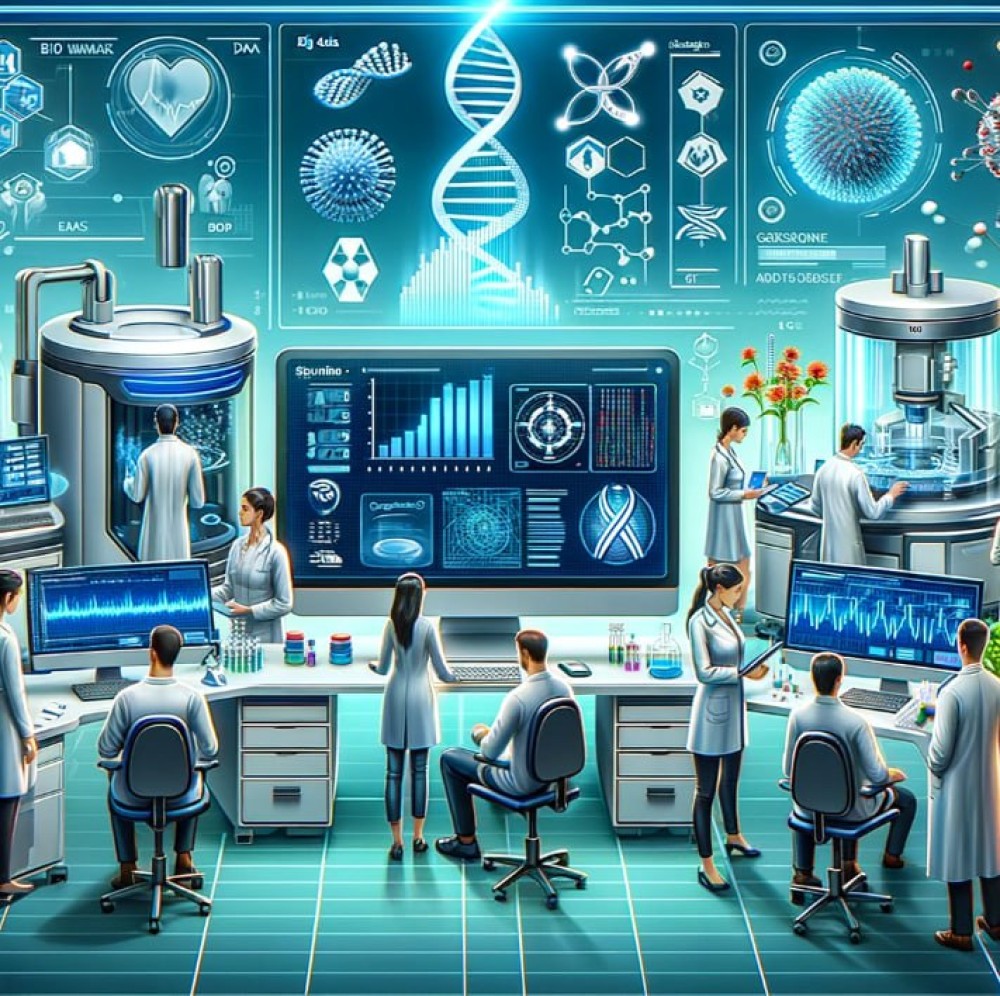Introduction
With the growing volume of data in medicine, the use of modern information technologies for their analysis and application for therapeutic and research purposes is becoming increasingly important. Big data in medicine is not just a term, it is a whole range of opportunities for improving the quality of diagnosis, treatment and predicting disease outcomes. In this context, IT professionals play a key role by providing tools and solutions that help healthcare professionals and researchers work more effectively with data.
Integrating big data into medical research opens new horizons for understanding complex biomedical processes. Using advanced analytical methods and machine learning, IT specialists are helping to rethink approaches to the treatment and prevention of diseases,making medicine more personalized and precise.
The Impact of Big Data on Medical Research
Big data in medicine is not just the accumulation of information; these are valuable insights that can radically change the way we treat and prevent disease. We'll look at how data specifically is used to improve medical research and practice.
Variety of data sources
Big data in medical research comes from a variety of sources: electronic medical records, laboratory test results, genetic information, patient data from wearable devices. Taken together, this data provides a comprehensive view of patients' health and allows them to discover patterns that were not possible with less detailed analysis.
Analytics and machine learning
The use of analytical tools and machine learning to process big data is becoming standard in medical research. Machine learning algorithms can predict disease progression, assess risks, and select individualized treatments based on patients' health history and genetic predisposition.
Case studies
- Prediction of cardiovascular diseases:Big data analysis has made it possible to develop models that predict the risk of developing cardiovascular diseases with high accuracy, which contributes to early diagnosis and prevention.
- Oncology: In oncology, big data is used to determine the most effective treatments based on the specific tumors and genetic characteristics of patients, which significantly increases the chances of a successful treatment outcome.
Impact on health policy
Big data also plays an important role in shaping healthcare policy. Data analysis helps determine which health interventions are most effective and cost-effective, leading to a more rational allocation of health care resources.
Ethical and legal aspects
With the increasing use of big data, privacy and ethical issues arise. It is important to develop strategies to protect patient data and ensure its privacy while complying with all legal requirements.
The role of IT specialists in medical laboratories

In the era of digitalization of medicine, the role of IT specialists is becoming increasingly important. They not only maintain and optimize existing systems, but also actively participate in the development of new technologies that transform medical research.
Key skills and knowledge
Healthcare IT professionals must have a unique combination of technical and medical knowledge. They must understand both the basics of data management and programming, as well as the specifics of medical processes and the needs of researchers.
- Programming and Data Analysis: Knowledge of programming languages such as Python or R and the ability to work with large data sets are essential skills.
- Artificial Intelligence and Machine Learning: Developing algorithms that can analyze complex medical data and make predictions or recommendations based on it.
- Systems Integration: Ability to integrate new technologies with existing medical systems for seamless operation.
Contribution to medical research
IT professionals make significant contributions to the development and implementation of technologies that improve the collection, storage, processing and analysis of medical data.
- Data Management: Developing systems to effectively manage and store medical data, ensuring its availability and security.
- Data Visualization: Creating medical data visualization tools that help researchers and clinicians better understand and interpret information.
- Process Automation: Automate routine tasks such as data entry and analysis of results, allowing researchers to focus on more complex aspects of the work.
Examples of successful projects
- Developing predictive models for early diagnosis of diseases: IT specialists, working closely with medical researchers, have created models that can predict the development of certain diseases in the early stages, significantly improving the chances of successful treatment.
- Optimization of laboratory processes: Implementation of automation systems that speed up sample processing and reduce the likelihood of errors in laboratory tests.
Career Opportunities
The variety of tasks and rapid developments in technology in medical research provide IT professionals with many opportunities for professional and career growth. Working in this field requires constant learning and adaptation to new challenges, which makes it especially attractive to technology-oriented professionals.
Challenges and opportunities for IT specialists in medicine

The development of medical technologies and the integration of IT specialties into the medical field open up many opportunities, but not without certain challenges. In this section, we look at the main challenges IT professionals face and the opportunities this fast-growing sector presents.
Main challenges
- Ensuring data confidentiality: In the medical industry, data protection requirements are particularly stringent. IT professionals must ensure that all systems comply with security standards and patient data protection legislation.
- Integration with existing medical systems: Many healthcare organizations use outdated hardware and software, making it difficult to integrate new technologies.
- Resistance to change: Not all healthcare professionals are ready to embrace new technologies, which requires IT professionals to have training and change management skills.
Opportunities for growth and innovation
- Development of new diagnostic tools: IT professionals can make significant contributions to the creation of diagnostic software, which can radically change the way diseases are detected and treated.
- Improving the quality of treatment:Using big data analytics and machine learning, IT professionals help analyze medical data for more accurate diagnosis and personalized treatment.
- Contribution to remote healthcare:The development of telemedicine, especially relevant during the pandemic, became possible thanks to technological innovations proposed by IT specialists.
Examples of successful integration
- Real-time patient monitoring: IT developments have made it possible to create systems for monitoring the condition of patients in real time, which has significantly improved the quality and speed of medical care.
- Personalized medicine: The use of machine learning algorithms to analyze patient genetic data has opened up new opportunities to create personalized therapeutic strategies.
Prospects for IT specialists in the medical field
Thanks to the steady advances in medical technology and the increasing demand for innovation, career prospects for healthcare IT professionals continue to expand. Those who are willing to overcome challenges and make meaningful contributions to health care find significant opportunities for professional growth and development.
Recruiting opportunities and services of our company
We are in Znojdziem acts as a bridge between talented IT specialists, researchers and medical organizations, providing the necessary resources and contacts for successful employment in the fields of research, IT, laboratories and medicine. We offer comprehensive solutions for searching and selecting specialists, as well as support at all stages of career growth.
Search and selection of talents
Our services begin with a thorough analysis of the needs of both employers and candidates. We use modern selection methods, including big data analysis and machine learning algorithms, to accurately match the requirements and preferences of both parties. This allows us to find ideal matches that best satisfy the interests and career ambitions of specialists.
Cooperation with leading companies and organizations
We We actively cooperate with leading medical organizations and research institutes around the world. Our partners, including MM - Verband, a healthcare association, provide attractive career opportunities and development. We help our clients become part of elite medical and research teams where they can make significant contributions to the advancement of medicine and healthcare.
Career support and development
We offer a variety of training and development programs that help specialists not only adapt to new roles, but also continue their professional and personal development. We strive to ensure that each specialist can realize their full potential.
Global network
Through our global network of companies and partners, we provide unique opportunities for work and research in different parts of the world. This opens doors for talent to international projects and collaborations, expanding their professional horizons.


